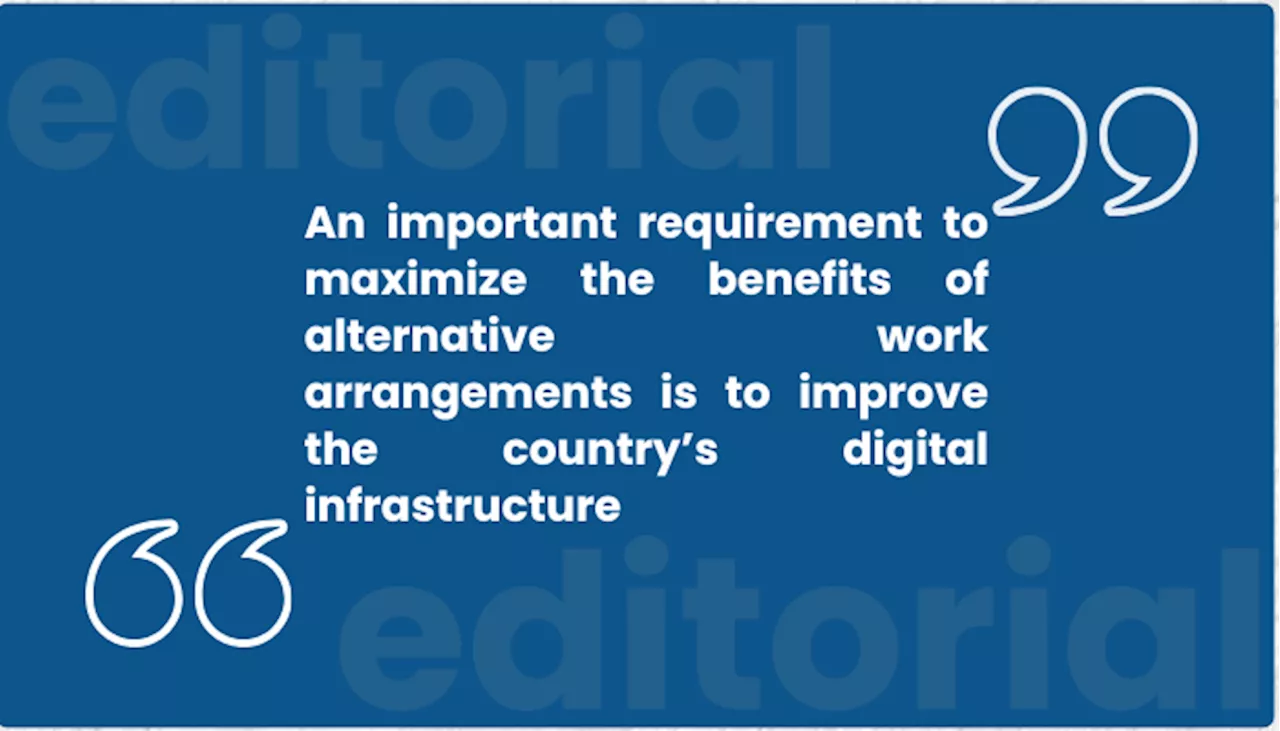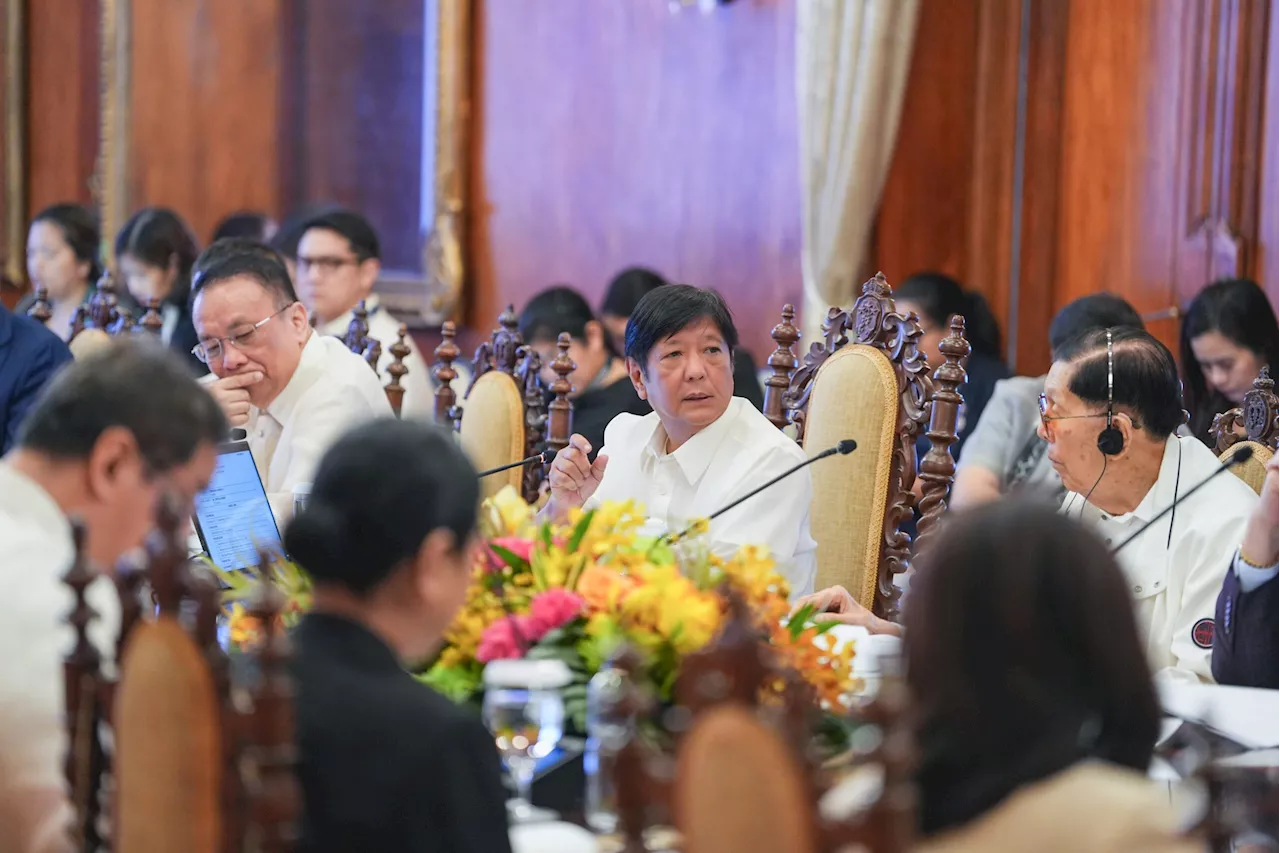While recent Philippine unemployment data paints a positive picture, experts warn of deeper issues within the labor market. Incremental improvements in job numbers fail to address the structural challenges of a predominantly informal workforce and low labor force participation. The Philippines risks becoming a permanently 'developing' economy if policy doesn't shift to prioritize 'future-proof' employment and adapt to emerging risks.
At the beginning of this month, the Philippine Statistics Authority (PSA) released the unemployment data for November 2024, and the news was encouraging. The unemployment rate had fallen to 3.2 percent from 3.6 percent a year earlier and 3.9 percent in October, and the underemployment rate had declined to 10.8 percent, the second-lowest monthly rate of the entire year.
Government officials were quick to congratulate themselves on the validation of current policies these incremental improvements represented, but when one steps back and looks at the Philippine employment situation as part of a bigger picture, the word that comes to mind most readily is 'stagnation.'\In a recent blog commentary, experts in social protection and employment from the Asian Development Bank (ADB) raised concerns about the preparedness of labor markets across Asia and the Pacific to respond to so-called megatrends, namely demographic shifts, technological evolution, and climate change. These trends will fundamentally alter the social and economic makeup of countries, but on the whole, the region seems ill-prepared for them. Much of what the authors described would not have been inaccurate if it were applied to the Philippines specifically instead of the broader region. 'Even before the Covid-19 pandemic widened poverty and inequality, high growth rates failed to improve labor market participation or productivity,' they wrote. 'Two-thirds of the region's workforce holds informal jobs, which typically offer low, irregular pay and no social protection. Informal employment is far more common in developing Asian economies (71 percent) than in advanced ones (22 percent). Most informal workers are self-employed, but wage jobs are more likely to provide better working conditions.'\These 'weaknesses in the region's employment sector' are already throttling economic and social gains, and leaving countries even more vulnerable to the impact of the megatrends. If 'more urgent and complex' policy choices are not made, the result will be that the current undesirable conditions of low job productivity and security will become permanent. Left unsaid but strongly implied by that is that as the employment sector goes, so goes the country; the Philippines could very well find itself locked into being a permanently 'developing' economy, unable to make the badly hoped-for jump into middle-income status. Consider some of the employment indicators that are not emphasized by those in government patting themselves on the back for a job well done. According to the PSA data, the labor force participation rate in November was slightly less than 65 percent. That means that more than a third of the working-age population is, for whatever reason, not working and not seeking work. That equates to about 25 million Filipinos. Among those who are working, only 63.8 percent are wage or salary workers, while 6.6 percent, or 3.27 million, are unpaid workers in family-owned businesses or farms, which labor advocates — and really, anyone with any reasoning ability — have long thought stretches the definition of 'employed.' 'Future-proof' employment\It is not that these numbers are less than ideal, it is that they are so consistent from month to month and year to year, and that is where the concerns flagged by the ADB experts are grounded. Overall macroeconomic growth is the focus of policy here in the Philippines and most other places, while the supporting policies pertaining to employment and particular economic sectors — agricultural, industry, tourism, services, and so on — are incremental in nature. Thus, gains are necessarily incremental as well, which is reflected in economic policymakers getting excited about positive changes in job numbers measured in fractions of a percentage point.\What the ADB experts recommend, in very broad terms, is that first of all, the policy perspective should shift from focusing on growth to focusing on job and income growth specifically, putting efforts into creating more formal employment that is 'future-proof.' The idea here is that growth will naturally follow, and it will probably do so more quickly here than in some other economies since the Philippines is so consumption-driven. Second, policy needs to be more flexible and imaginative when it comes to risks. The Covid-19 pandemic is a good example of an unexpected, comprehensive shock that can immediately remake the economy; the development of the so-called megatrends is a sign that such shocks may become more commonplace. Is our employment sector prepared for this future? We think not, but we believe that can change
Philippines Employment Unemployment Labor Market Economic Growth Informal Employment Megatrends ADB
Philippines Latest News, Philippines Headlines
Similar News:You can also read news stories similar to this one that we have collected from other news sources.
 Holiday Rush Boosts Employment in PhilippinesThe Philippines saw a decrease in unemployment and underemployment in November 2024, attributed to businesses preparing for the holiday season. The unemployment rate fell to 3.2%, while the underemployment rate dropped to 10.8%. The manufacturing and wholesale and retail industries experienced significant job growth, with the manufacturing sector adding 784,000 jobs and the retail sector increasing employment by 746,000 jobs.
Holiday Rush Boosts Employment in PhilippinesThe Philippines saw a decrease in unemployment and underemployment in November 2024, attributed to businesses preparing for the holiday season. The unemployment rate fell to 3.2%, while the underemployment rate dropped to 10.8%. The manufacturing and wholesale and retail industries experienced significant job growth, with the manufacturing sector adding 784,000 jobs and the retail sector increasing employment by 746,000 jobs.
Read more »
 CREATE MORE Act Poised to Boost Employment in the PhilippinesThe CREATE MORE Act, recently signed into law, is expected to significantly impact employment in the Philippines by providing tax incentives to businesses. The law aims to stimulate economic growth and create more job opportunities, aligning with the government's goal of inclusive growth. While the November 2024 Labor Force Survey showed positive results with an increase in the employment rate and a decrease in the unemployment rate, the Department of Labor and Employment (Dole) acknowledges the ongoing challenges of technological disruptions and climate change. The CREATE MORE Act, alongside the Enterprise-based Education and Training Framework Act, seeks to address these vulnerabilities by encouraging workforce expansion and innovation.
CREATE MORE Act Poised to Boost Employment in the PhilippinesThe CREATE MORE Act, recently signed into law, is expected to significantly impact employment in the Philippines by providing tax incentives to businesses. The law aims to stimulate economic growth and create more job opportunities, aligning with the government's goal of inclusive growth. While the November 2024 Labor Force Survey showed positive results with an increase in the employment rate and a decrease in the unemployment rate, the Department of Labor and Employment (Dole) acknowledges the ongoing challenges of technological disruptions and climate change. The CREATE MORE Act, alongside the Enterprise-based Education and Training Framework Act, seeks to address these vulnerabilities by encouraging workforce expansion and innovation.
Read more »
 Philippines Pushes for Alternative Work Arrangements to Boost EmploymentThe Philippine government is committed to promoting alternative work arrangements (AWAs) to sustain gains in reducing unemployment and underemployment. The National Economic and Development Authority (NEDA) is leading this initiative, aiming to adapt to evolving worker preferences and the demands of both public and private sectors. This push comes after a drop in unemployment and underemployment figures in November 2022, indicating a robust labor market.
Philippines Pushes for Alternative Work Arrangements to Boost EmploymentThe Philippine government is committed to promoting alternative work arrangements (AWAs) to sustain gains in reducing unemployment and underemployment. The National Economic and Development Authority (NEDA) is leading this initiative, aiming to adapt to evolving worker preferences and the demands of both public and private sectors. This push comes after a drop in unemployment and underemployment figures in November 2022, indicating a robust labor market.
Read more »
 Philippines Tourism Promotes 'Love the Philippines' Campaign Despite Budget CutsDespite a reduced budget for branding and marketing, the Philippines Department of Tourism (DOT) continues to promote the country abroad through various media channels, including television, billboards, and social media. Tourism Secretary Christina Garcia Frasco highlighted the ongoing 'Love the Philippines' campaign, which has reached key markets worldwide. While acknowledging the challenges posed by the budget cuts, Frasco emphasized the DOT's efforts to address power supply issues on Siargao Island and promote sustainable tourism development.
Philippines Tourism Promotes 'Love the Philippines' Campaign Despite Budget CutsDespite a reduced budget for branding and marketing, the Philippines Department of Tourism (DOT) continues to promote the country abroad through various media channels, including television, billboards, and social media. Tourism Secretary Christina Garcia Frasco highlighted the ongoing 'Love the Philippines' campaign, which has reached key markets worldwide. While acknowledging the challenges posed by the budget cuts, Frasco emphasized the DOT's efforts to address power supply issues on Siargao Island and promote sustainable tourism development.
Read more »
 Philippines Says No Sensitive Data Compromised in Alleged Chinese HackA Philippine security official confirmed a hacking attempt against government databases but assured that no sensitive information was compromised. The alleged attack, reported by Bloomberg, targeted several Philippine institutions, including Malacañang, the official residence of the Philippine president.
Philippines Says No Sensitive Data Compromised in Alleged Chinese HackA Philippine security official confirmed a hacking attempt against government databases but assured that no sensitive information was compromised. The alleged attack, reported by Bloomberg, targeted several Philippine institutions, including Malacañang, the official residence of the Philippine president.
Read more »
 Manila Bulletin and Arkipelago Analytics Partner to Drive Data-Informed Journalism in the PhilippinesManila Bulletin and Arkipelago Analytics join forces to integrate data science into journalism, providing Filipinos with data-driven insights on key issues.
Manila Bulletin and Arkipelago Analytics Partner to Drive Data-Informed Journalism in the PhilippinesManila Bulletin and Arkipelago Analytics join forces to integrate data science into journalism, providing Filipinos with data-driven insights on key issues.
Read more »
